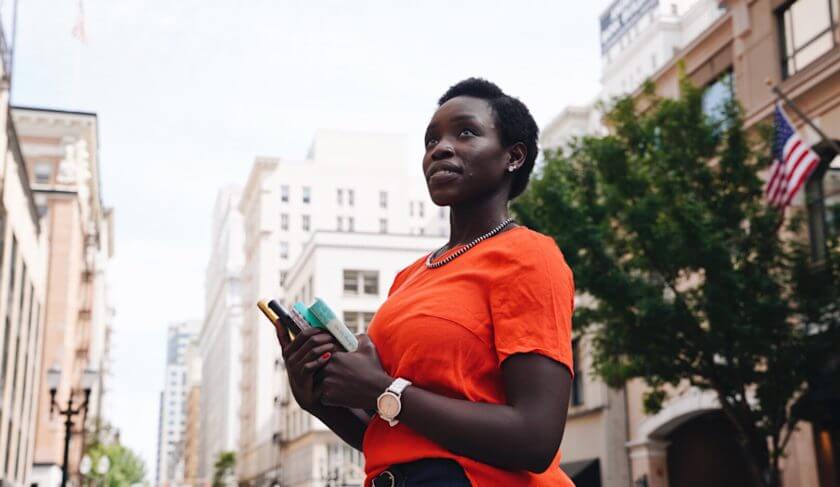
Last week marks one year since many of us were first asked to stay at home, and it feels like it’s been both a lifetime and an instant.
While many of us have reported feeling a distorted sense of time over the past year, time did in fact tick on at its usual pace, leaving behind it a recession that has disproportionately impacted women, especially women of color. According to the National Women’s Law Center, since the pandemic started, women have lost more than 5.4 million jobs, with many also disproportionately losing the long-term financial security that comes in the form of benefits like access to a retirement plan and employer-sponsored life insurance.
As the financial wellness gender gap widens further, the way forward is to have conversations like this one and to take action toward closing it.
READ MORE: It’s Going To Take 20 Years For The Gender Pay Gap To Recover To Pre-Pandemic Levels
When we first started Ladder, closing a gender gap was not the primary purpose. We simply wanted to provide access to life insurance to more people in an easy, accessible, and affordable way. We believe that no one should have to rely on crowdsourcing efforts in the event of loss to provide financial stability.
In the aftermath of the pandemic, it’s clearer than ever that we have work to do as a community and as an industry to ensure that women have equal access to life insurance. According to a Prudential study on Financial Experience and Behaviors among women, roughly a third of women feel a lack of time hinders them from moving forward with financial decisions. We know life gets busy, so at Ladder, we built a seamless online experience, rooted in technology, where applicants can apply in 5 minutes and find out instantly if they’re approved. If an applicant qualifies, they’ll get an instant offer for life insurance that they can accept on the spot. The traditional experience is a months-long underwriting process for life insurance, involving fax machines, medical visits, and multiple conversations with an agent.
A 2019 study on Women, Money, and Power found that 60% of women said financial professionals treat their male spouse/partner as the decision maker. Technology removes that negative bias and makes financial services more inviting to women. It also makes them more fair. More than ever, our industry needs to support technological trends and combat unfair biases. Thankfully, we are making good progress in regards to the financial wellness gender gap. When we launched Ladder, women represented less than a quarter of our life insurance applications. Today, women make up almost half of our applicants and women policyholders refer friends and family at a rate nearly 20% higher than men.
READ MORE: The New Rules For Being And Finding A Mentor In 2021
Beyond designing products that are more accessible and equitable for everyone, as a co-founder, representation within the company is equally important to me. According to a recent study by Deloitte, the global fintech founder community is dominated by men, with women making up just 7% of the total pool. At Ladder, 67% of my direct reports are women, and women account for 44% of the CEO’s direct reports as well. Building a diverse team — across many dimensions — of talented and enthusiastic people benefits our team, our product, and our community.
We’re excited about the progress that we’ve made so far in the financial wellness gender gap, but we know we still have work to do. We can’t wait for the promise of a secure financial future as more of us make some noise and some changes, too.
READ MORE:
- How To Close The Gender Pay Gap Once And For All
- Stop The Gender Pay Gap And Make More Money, With Mika Brzezinski
- How Dasha Kennedy Is Disrupting The Racial And Gender Wealth Gap
JOIN US! Our best money and life advice delivered to your email box for free each week. Subscribe to HerMoney today.







